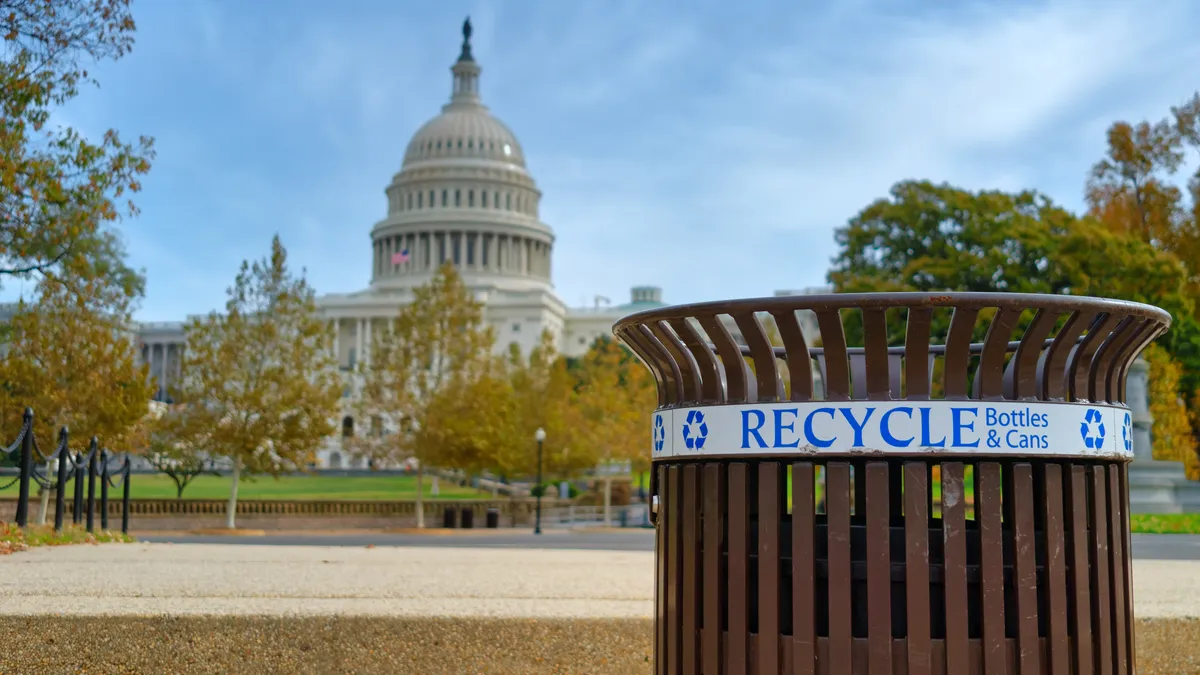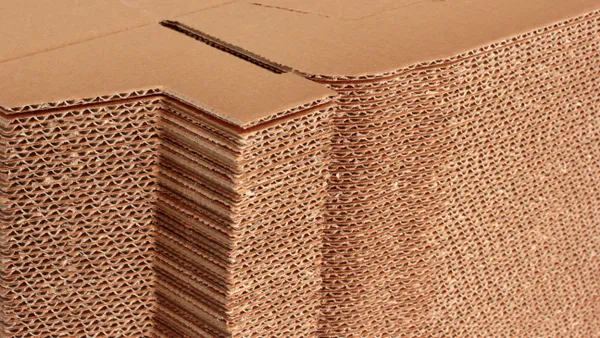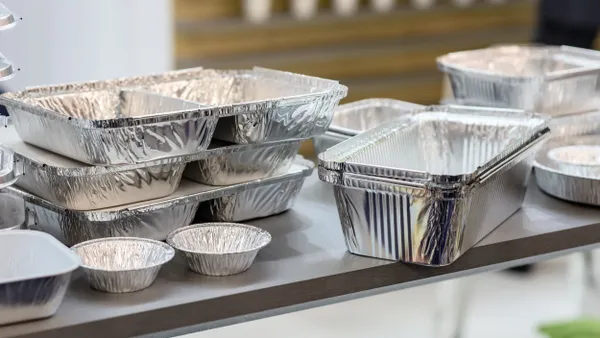Just hours before President Trump’s Wednesday afternoon announcement of sweeping baseline tariffs, the U.S. Department of Commerce posted a document detailing separate 25% duties on all imported aluminum cans and canned beer that are set to take effect just after midnight Friday.
The notice updates the list of items included in aluminum tariffs that Trump announced in February to take effect March 12. The new document updates the list with “two additional aluminum derivative products: beer and empty aluminum cans.” The newly announced duties cover these imports from any country.
The tariff codes indicate the 25% rate applies to empty aluminum cans as well as to “beer made from malt.” The notice also specifies that the other previously listed items — such as certain aluminum foils and sheets — remain unchanged.
The Aluminum Association said via email Thursday afternoon that it supports the beer can tariffs as a way to address certain Mexican brewers’ and can makers’ use of Chinese aluminum can sheet for their beer exports into the United States. Chinese can transshipment has become a problem in recent years, according to a spokesperson.
Further, AA notes that aluminum can ends are not specifically named in the derivative product tariffs, but industry should consider requesting that Commerce adds them for coverage by the 25% tariff. Commerce is expected to identify a process for this by mid-May, according to AA.
Trump also announced on Wednesday afternoon a universal baseline tariff of 10% on nearly all imported goods from all countries, effective Saturday. In addition, certain trading partners such as China, Japan and the European Union are subject to higher rates that are set for April 9.
That directive includes numerous exemptions, including for goods such as copper and lumber. Similarly, tariffs that the administration previously announced will stay as-is, including those on steel and aluminum and on cars and automotive parts.
The beer and can addendum stands to affect packaging suppliers as well as a beer industry that already has been experiencing sales dips, largely in response to consumer tastes shifting toward hard seltzers, ready-to-drink cocktails and alcohol-free beverages. Plus, a Bud Light controversy in 2023 over a transgender spokesperson hit parent company Anheuser-Busch InBev’s sales and carried over to lower volumes for packaging suppliers including Ardagh and Ball.
That controversy dethroned Bud Light in 2023 from the spot of America’s top selling beer, and Constellation Brands’ Modelo rose to No. 1. But industry analysts anticipate the new beer and can tariffs will strike a hard blow to Constellation, who imports all of its beer from Mexico.
The consumer packaged goods industry already manufactures the majority of its products in the United States, said Tom Madrecki, vice president of supply chain resiliency at the Consumer Brands Association, via email Thursday morning. However, certain “critical ingredients and inputs” need to be imported “due to scarce availability domestically” he said, adding that “no amount of tariffs will bring these inputs back to the U.S.”
“However well intended, the success of the President’s America First Trade Policy, must recognize the U.S. companies that are already doing it the right way but depend on imports for specific ingredients and inputs that cannot be sourced domestically,” Madrecki said. “We encourage President Trump and his trade advisors to fine-tune their approach and exempt key ingredients and inputs in order to protect manufacturing jobs and prevent unnecessary inflation at the grocery store.”
The Can Manufacturers Institute declined to comment on this week’s news and referred to its prior position on tariffs.
Last month, CMI President Robert Budway issued a statement in response to the Trump administration’s aluminum and steel tariffs.
“While we support President Donald Trump’s efforts to address unfair trade practices, tariffs on steel and aluminum will increase prices for canned foods and beverages. Consumers will feel the inflationary impact of these tariffs at the grocery store,” Budway said in the March 12 statement. “We are calling on President Trump to provide targeted tariff relief, ensuring steel and aluminum cans and the products packaged in those cans continue to be ‘Made in America.’”
Editor’s note: This story has been updated with comment from the Aluminum Association and more specific information about which product categories are covered by the tariff.















